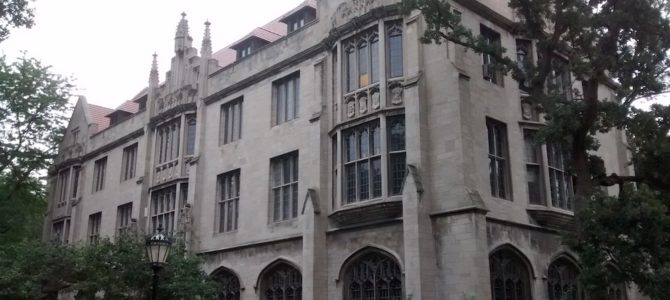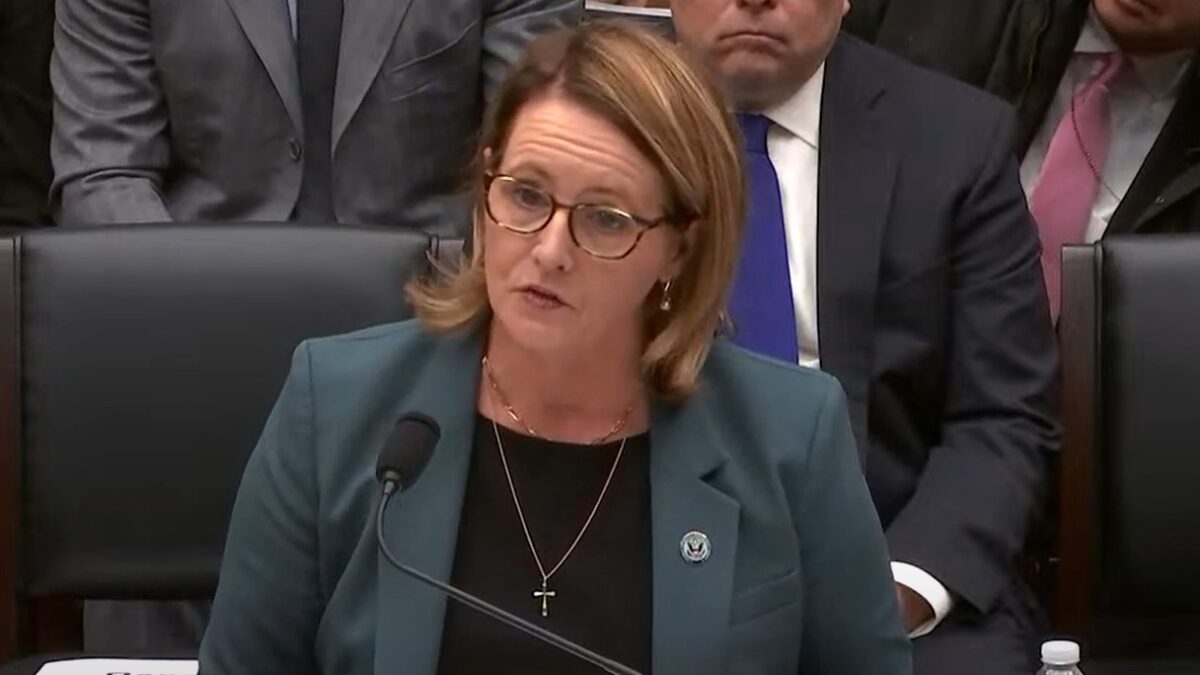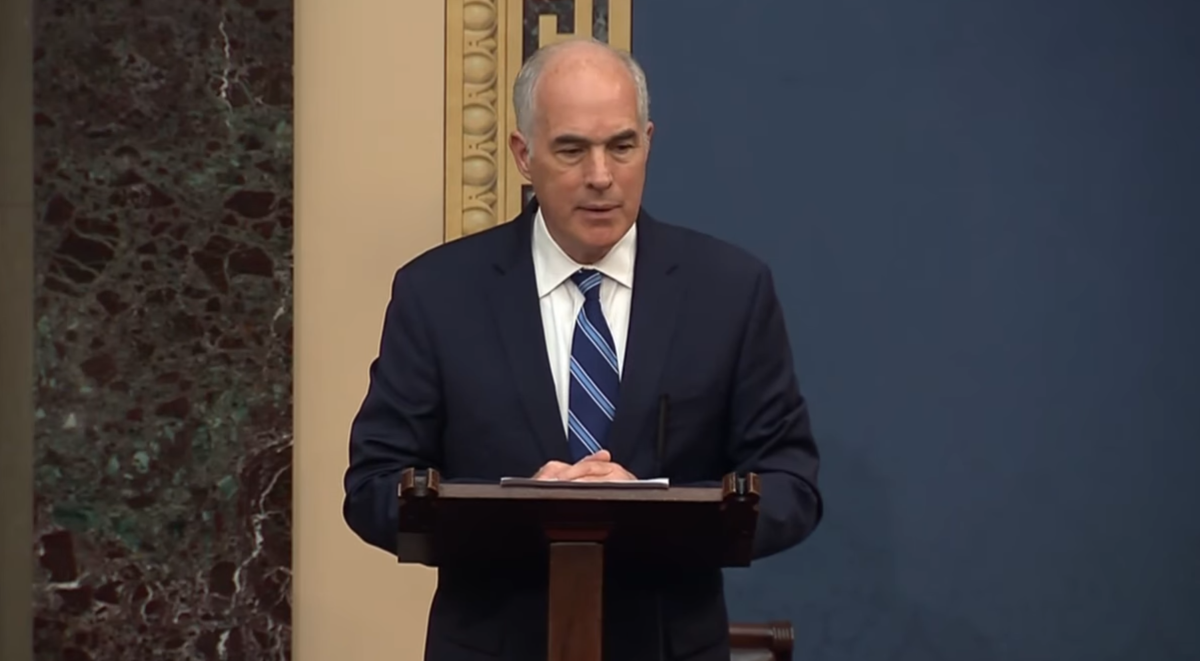The University of Chicago’s English Department deleted a portion of its July 2020 “Faculty Statement,” which announced the department was only accepting graduate “applicants interested in working in and with Black Studies” for the 2020-2021 academic year.
Even though the department deleted the line, it is apparently still committed to the July statement. During the most recent application cycle, the department admissions page indicates they indeed only accepted students who will work in and with Black Studies.
Here is the original statement: 
Here is the revised version:
After noticing that the sentence had been deleted with no note of an update, the Chicago Thinker, a student publication, reached out to the English Department. The Chicago Thinker asked whether the department only accepted graduate applicants interested in working “in and with Black Studies.”
The department’s public affairs office directed the Chicago Thinker to the graduate admissions page, where the original line appears: “For the 2020-2021 graduate admissions cycle, the University of Chicago English Department is accepting only applicants interested in working in and with Black Studies.”
Under “Frequently Asked Questions about the Ph.D. Application,” the English Department’s admissions page clarifies that the “focus on Black Studies applies only to the 2020-21 Ph.D. admissions cycle.” The admissions page also says admitted Black Studies Ph.D. students are “encouraged to take advantage of the wide variety of courses, not restricted to Black Studies, offered by the Department and the Division.”
It is unclear whether the admissions page comments were added after the department deleted them from its July faculty statement, or if the comments were always available on the admissions page. What is clear is that the department never changed its mind about its decision to only accept “Black Studies” students.
A possible explanation for the English Department’s decision to delete part of the faculty statement could be that the department’s move to block other areas of intellectual exploration was picked up by major news outlets, creating a lot of negative press for the university. The decision has been criticized by many who see it as exclusionary and contrary to the University of Chicago’s “Chicago Principles,” and “Kalven Report.”
The Chicago Principles represent the university’s public commitment to protecting free speech and encouraging open debate. The Kalven Report is a faculty committee report, which warns that the very taking of a position by the university might chill the environment for free expression and academic freedom. The report establishes that it is essential for the university to remain a place where individuals can explore and possess whatever intellectual positions they wish.
Columnist Benjamin Schwarz wrote in Spiked that the English Department’s decision “violates the university’s long-held and hard-won principles of freedom of expression and academic freedom.” Schwarz explained that the statement is “plainly a manifesto expressing political commitment,” and that the first sentence “explicitly aligns the English Department to a political movement, Black Lives Matter, that adheres to a specific ideology, built on premises that range from the undisputed to the debatable to the dubious, in pursuit of radical societal goals that are hardly uncontested.”
Schwarz continued, writing, “the manifesto next commits the department and all its members to ‘the struggle of Black and Indigenous people, and all racialised and dispossessed people’ – a struggle that, however laudable some might find it, is certainly far from politically neutral.” Finally, Schwarz pointed to the last paragraph of the faculty statement. According to him, the statement gives “an explicit declaration of social advocacy,” by writing, “[p]art of our commitment to the struggle for Black lives entails… activism.”
Some critics took to Twitter to express their displeasure over the decision. Ayaan Hirsi Ali, a black human rights activist, wrote, “[t]his is all too idiotic. Most of us don’t know whether to laugh or cry. By the logic of their creed, wouldn’t English be the oppressor’s language?”
“I am obviously interested in black literature. But being strong-armed into studying it??” asked cultural critic Thomas Chatterton Williams.
Samantha Harris, a free speech and due process attorney, told The College Fix her “concern with the announcement is that it effectively imposes a political litmus test on applicants to the graduate program.”
“It sets forth the English Department’s very specific views on contested political issues and effectively says ‘those who disagree need not apply,’” she stated. “[The university] may certainly have the right to do that, but it’s a sad commentary on the state of American higher education when a major department at one of the nation’s top universities explicitly chooses to embrace a political agenda to the point of excluding students who disagree.”
In a statement issued last Monday, University President Robert Zimmer addressed the English Department controversy and other criticisms of the administration and department heads, writing, “I have received several comments recently raising the question whether certain actions within the University were consistent with the Kalven Report and the Chicago Principles, or whether the actions were inconsistent with these principles.” Zimmer cited the English Department controversy as “[r]epresentative of these actions.”
Zimmer insisted that it is important that “the University and its units take full cognizance of [the Kalven Report and Chicago Principles’] importance so actions that might be seen as in conflict with them are explained carefully and are implemented in such a way as not to diverge from these core principles of our University.”
Zimmer also addressed the “competing views” on the English Department controversy. “[S]ome members of the University community have expressed concern that the exclusive disciplinary commitment effectively represents a political test for admission,” wrote Zimmer. He conceded that the department’s decision would stand in direct opposition to both the Kalven Report and the Chicago Principles “[t]o the extent [a political test for admission] was the intent of adopting this policy, or to the extent it is implemented in such a manner, or to the extent it is reasonably perceived by students and faculty as having this purpose.”
According to Zimmer, “[t]he idea or even implication that there would be a political criterion applied to admission to our doctoral program would be incompatible with the fundamental principles of our University.”
However, Zimmer did not disclose any future plans to rectify the actions of university departments or the administration, who have been charged with using their power to silence debate, restrict intellectual diversity, and endorse mob mentality on campus. Zimmer also did not say whether the administration and department heads were in fact guilty of violating the Chicago Principles and the Kalven Report. Instead, he simply wrote that “we” (presumably the university community) would “consider these issues.”
The Chicago Thinker welcomes further clarification from the English Department to explain why the original faculty statement was altered — hopefully more than a link to the department’s admissions page. The Chicago Thinker is also happy to hear from Zimmer about any decisions or conclusions the administration come to as it “consider[s] these issues.”
This story was originally published in the Chicago Thinker.









